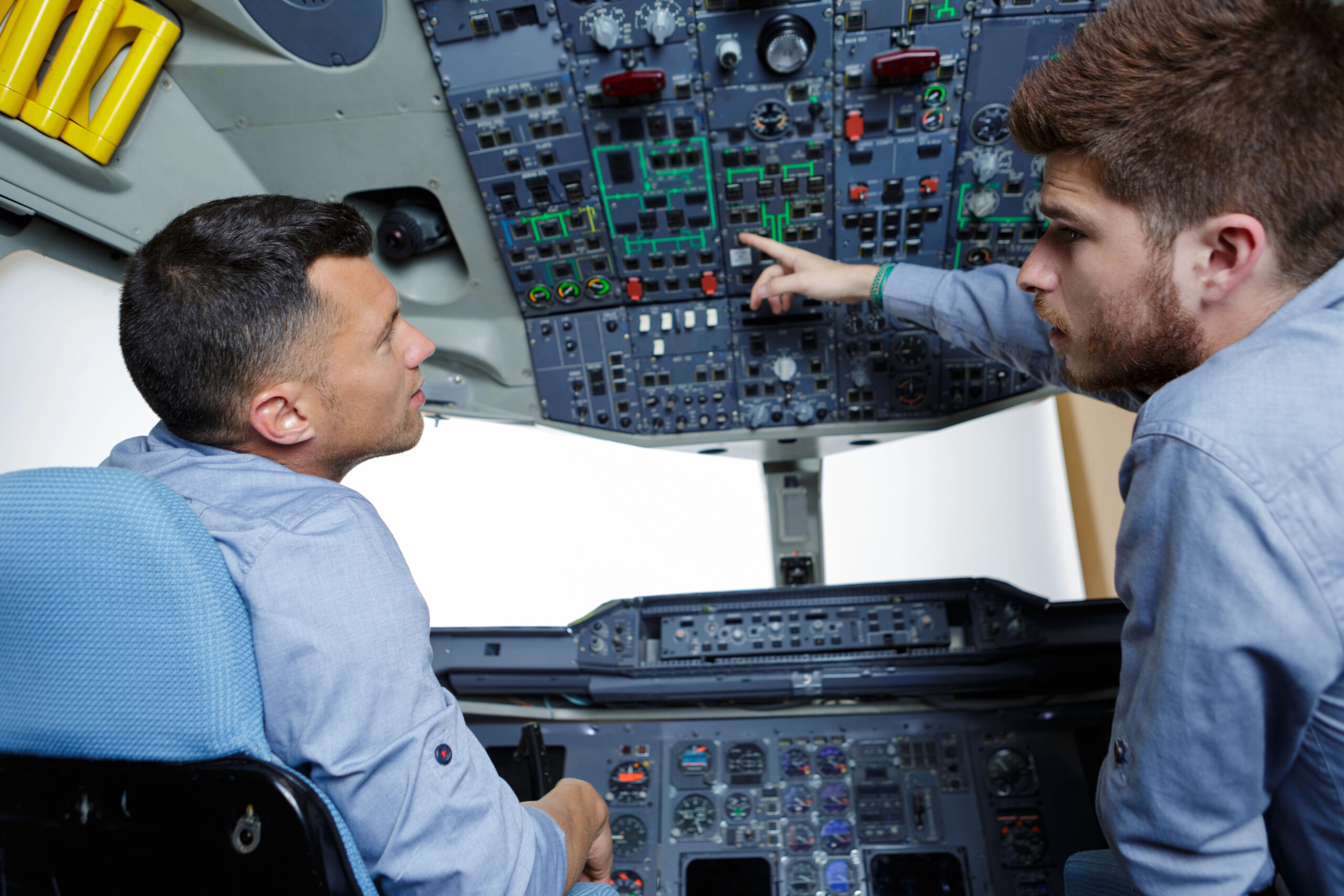What Disqualifies You from Being a Pilot?

- aviatorpro_6714
Becoming a pilot is a dream for many, offering the freedom to soar through the skies and explore the world from above. It is a career that not only promises adventure but also carries significant responsibilities. However, the path to becoming a pilot is not without its challenges and stringent requirements. Understanding the various factors that can disqualify you from being a pilot is crucial for anyone aspiring to take to the skies. These disqualifications can range from medical conditions to personal history, and knowing them in advance can help you prepare adequately for this demanding yet rewarding career path.
While the notion of flying an aircraft is exhilarating, it is important to recognize the gravity of the role. Pilots are responsible for the safety of their passengers and crew, making it imperative that they meet high standards of health, conduct, and competence. As you embark on this journey, being well-informed about potential disqualifications can not only help you address them proactively but also increase your chances of success. This article outlines the key disqualifiers, including medical conditions, personal history, and training requirements, along with potential ways to overcome them.
Medical Conditions That May Disqualify You
One of the primary factors that can disqualify you from becoming a pilot is your health status. The Federal Aviation Administration (FAA) sets strict medical standards that all pilots must meet to ensure they can safely operate an aircraft. Maintaining optimal health is not just a requirement but a necessity to handle the physical and mental demands of flying. Here are some key medical conditions that might disqualify you:
Vision Impairment
Pilots need to have good eyesight to operate an aircraft safely. Vision plays a critical role in navigation, reading instruments, and maintaining situational awareness. While corrective lenses are often acceptable, certain vision impairments can be a disqualification. For instance, if you are colorblind to the point where you cannot distinguish between important signal lights, it might be a concern. Additionally, conditions such as severe myopia or uncorrectable vision issues may also hinder your ability to meet the FAA’s vision standards.
Hearing Loss
Hearing is crucial for pilots to receive instructions from air traffic control and other communications. Effective communication is vital for maintaining coordination and safety during flight operations. Significant hearing loss, even with hearing aids, may prevent you from qualifying as a pilot. However, if your hearing loss is mild and can be corrected with appropriate devices, you may still qualify, provided you can demonstrate adequate hearing ability through an FAA-approved audiometric test.
Cardiovascular Conditions
Heart health is another critical area for pilots. Conditions such as coronary artery disease, heart attacks, or other significant heart problems can disqualify you from flying. A pilot must have a healthy cardiovascular system to handle the physical demands of flying, including changes in altitude and pressure. Regular cardiac evaluations and maintaining a healthy lifestyle are essential to ensure your heart health aligns with FAA requirements. In some cases, if you can provide evidence of successful treatment and management of your condition, you may be eligible for a special issuance medical certificate.
Mental Health Disorders
Certain mental health conditions can also disqualify an individual from becoming a pilot. Disorders such as severe depression, bipolar disorder, or schizophrenia are considered disqualifying due to the potential risks associated with them. The FAA evaluates mental health on a case-by-case basis, focusing on the stability and treatment of the condition. If you have a manageable mental health disorder, you may still qualify if you can demonstrate that it is under control and does not impair your ability to fly safely.
Neurological Disorders
Conditions affecting the nervous system, such as epilepsy or other seizure disorders, are considered disqualifying due to the unpredictability of seizures and the potential danger they pose during flight. The FAA is particularly cautious with neurological disorders because they can compromise a pilot’s ability to control the aircraft. If you have a history of seizures but have been seizure-free for a significant period and have medical evidence to support this, you may be eligible for a waiver.
Respiratory Issues
Chronic respiratory conditions like severe asthma or chronic obstructive pulmonary disease (COPD) can impact your ability to operate an aircraft safely, particularly under high-altitude conditions. The ability to breathe efficiently is crucial for pilots, especially in environments where oxygen levels are lower. While mild asthma might be manageable with medication, severe cases may require further evaluation to assess your fitness to fly. Ensuring your respiratory condition is well-managed can enhance your prospects of passing the FAA medical evaluation.
Personal History and Background Checks
In addition to medical conditions, your personal history can also impact your eligibility to become a pilot. The FAA conducts thorough background checks to ensure the safety and reliability of pilot candidates. These checks are designed to assess your character and history for any potential red flags that could compromise your ability to perform safely as a pilot.
Criminal Record
A criminal record, particularly involving felonies or offenses related to drugs or alcohol, can disqualify you from becoming a pilot. The aviation industry places a high emphasis on trustworthiness and responsibility, and a criminal history may raise concerns. Minor infractions might not be disqualifying, but serious offenses can lead to a permanent ban from holding a pilot’s license. Demonstrating rehabilitation and a commitment to law-abiding behavior can sometimes mitigate the impact of past transgressions, although each case is assessed individually.
Substance Abuse
A history of substance abuse, including alcohol and drugs, is a significant red flag for potential pilots. Sobriety is crucial for the safety of both the pilot and passengers and a history of substance abuse can disqualify you from obtaining a pilot’s license. The FAA has a zero-tolerance policy for substance abuse, and candidates must demonstrate a clear history of responsible behavior. Completing a recognized rehabilitation program and maintaining a track record of sobriety can improve your chances of becoming a pilot despite past substance issues.
Driving Record
Your driving record can also influence your eligibility. Multiple DUIs or other serious driving offenses may suggest a pattern of risky behavior, which is not compatible with the responsibilities of a pilot. The FAA considers a poor driving record indicative of potential issues with judgment and decision-making. If you have a blemished driving record, taking steps to improve your driving habits and demonstrating a period of responsible behavior can help in your application process.
Training and Certification Requirements
Becoming a pilot requires meeting specific training and certification requirements, which can also serve as potential disqualifying factors. These requirements ensure that a pilot is fully prepared to handle the complexities and demands of operating an aircraft safely.
Educational Background
While there is no specific educational requirement to become a pilot, having a strong foundation in math and science is beneficial. A solid grasp of these subjects can aid in understanding navigation, meteorology, and aircraft systems. Some airlines may prefer candidates with a college degree, particularly in aviation-related fields. A degree can enhance your career prospects and provide a competitive edge in the job market.
Flight Training
Completing flight training and obtaining the necessary certifications is essential. This includes a private pilot license, instrument rating, and potentially a commercial pilot license, depending on your career goals. Flight training is rigorous and requires dedication and perseverance. Failure to complete these training requirements can disqualify you from becoming a licensed pilot. Choosing a reputable flight school and committing to a structured training program can significantly enhance your prospects of success.
Language Proficiency
Pilots must be proficient in English, as it is the international language of aviation. Effective communication is crucial for maintaining safety and coordination in international airspace. Being unable to communicate effectively in English can disqualify you from obtaining a pilot’s license. Engaging in language courses and practicing aviation-specific English can help you meet the language proficiency standards required by the FAA.
Overcoming Disqualifications
While some disqualifications are absolute, others may be overcome with proper intervention or treatment. Here are some steps you can take if you face potential disqualifications:
Medical Waivers
In some cases, the FAA may grant a special issuance medical certificate, or waiver, for certain medical conditions if you can demonstrate that you have them under control and pose no significant risk. Obtaining a medical waiver often involves comprehensive medical evaluations and documentation from your healthcare provider. Collaborating with an aviation medical examiner who understands the FAA’s requirements can improve your chances of securing a waiver.
Rehabilitation Programs
For those with a history of substance abuse, completing a rehabilitation program and demonstrating sustained sobriety can improve your chances of becoming a pilot. Engaging in ongoing support groups and counseling can further solidify your commitment to a substance-free lifestyle. The FAA values evidence of rehabilitation and a stable, responsible lifestyle when assessing candidates with past substance issues.
Legal Assistance
If you have a criminal record, seeking legal assistance to understand your options for expungement or other remedies may be beneficial in your pursuit of a pilot’s license. Legal experts can guide you through the process of clearing your record or presenting mitigating evidence to the FAA. Demonstrating efforts to rectify past mistakes and exhibiting a consistent pattern of lawful behavior can enhance your application.
Conclusion
Becoming a pilot is a significant commitment that requires meeting stringent health, personal, and educational standards. The journey is demanding but immensely rewarding for those who meet the criteria. While there are many factors that can disqualify you from being a pilot, understanding these requirements and proactively addressing potential issues can help you navigate the path to achieving your dream of flight. Always consult with aviation professionals and medical experts to assess your individual situation and explore your options for overcoming any disqualifications you may face. With determination and the right guidance, you can overcome obstacles and take to the skies with confidence.



